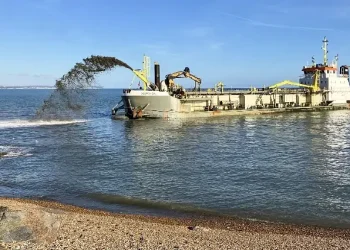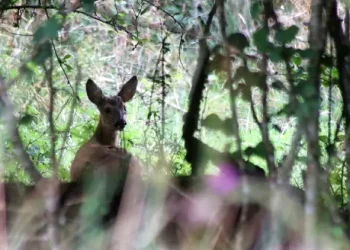A new alliance of six prominent organizations has come together to help rural communities and farmers across the UK become more resilient to floods.
The Rural Flood Resilience Partnership was launched on 23rd September 2024 to address the growing impact of climate change, which has led to more severe and frequent storms.
Building Resilience in the Face of Climate Change
With rural areas on the front line of the UK’s changing weather patterns, flooding has become an increasingly urgent issue. Last winter marked one of the wettest periods since records began in 1836, devastating crops and isolating communities.
The new partnership aims to build flood resilience in these vulnerable regions, offering support and solutions to farmers and landowners.
The partnership is made up of six equal founding members:
- Action with Communities in Rural England (ACRE)
- Association of Drainage Authorities (ADA)
- Country Land and Business Association (CLA)
- Environment Agency
- National Farmers Union (NFU)
- Natural England
Their combined expertise will guide rural communities in adapting to the challenges posed by climate change and help prevent future flood damage.
The Partnership’s Goals and Strategies
The partnership has laid out a comprehensive work plan for 2024-2026, focusing on seven strategic outcomes. These include:
- Developing evidence-based decision-making to improve flood resilience.
- Providing access to expert advice for farmers and rural landowners.
- Engaging local communities to foster flood preparedness.
James Blake, Chair of Trustees at ACRE, highlighted the importance of community involvement, stating:
“It’s vital that everyone living and working in rural communities has an opportunity to influence plans to manage the consequences of climate change.”
By fostering collaboration between public authorities, local businesses, and farmers, the partnership aims to create tailored solutions that reflect the unique needs of each region.
Challenges Facing Rural Areas
Flooding presents distinct challenges for rural communities, often leading to economic damage and isolation.
Victoria Vyvyan, President of the Country Land and Business Association, pointed out the acute impact on rural businesses:
“The damage from flooding is localised but severe, and these events will only increase with climate change.”
Farmers are at the forefront of this struggle, as more severe storms threaten the UK’s food production.
NFU Vice President Rachel Hallos stressed the urgency of the situation:
“Farmers are on the frontline of climate change. More severe storms and devastating floods are impacting our ability to produce food.”
Supporting Rural Communities with Practical Solutions
The partnership will take action to prevent further damage by supporting rural communities with practical advice and interventions.
Over the next two years, the partnership plans to implement several initiatives aimed at strengthening flood defences and increasing awareness of climate risks.
Some of the planned actions include:
- Strengthening collaboration between farmers and local authorities to manage land and water more effectively.
- Providing targeted resources to help farmers adopt sustainable farming practices that can mitigate flood risks.
Initiative |
Outcome |
|---|---|
| Evidence-based flood management | Improved decision-making for farmers and landowners |
| Access to flood resilience advice | Practical support for rural communities and agricultural businesses |
| Enhanced local collaboration | Stronger partnerships to address flood risks in specific rural regions |
A Unified Approach to a Global Issue
As the UK continues to experience more extreme weather, partnerships like this one will be crucial in addressing climate change’s impact on rural areas.
With over 40% of flood management schemes already benefiting rural communities, the Rural Flood Resilience Partnership aims to build on this momentum.
Caroline Douglass from the Environment Agency said:
“Flooding presents specific challenges to those living and working in rural communities, from ruined crops to having road access cut off by floodwaters.”
Through their collective efforts, the founding members of the partnership hope to protect the livelihoods of rural communities while ensuring a sustainable future for the UK’s agricultural sector.
Sources: THX News, Environment Agency & Natural England.









